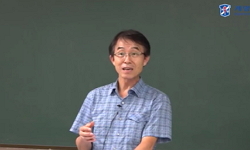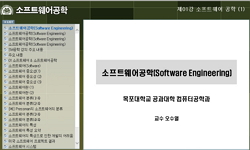Korea Astronomy and Space Science Institute (KASI) has been developing one mobile and one stationary SLR system since 2008 named as ARGO-M and ARGO-F, respectively. KASI finished the step of deriving the system requirements of ARGO. The requirements i...
http://chineseinput.net/에서 pinyin(병음)방식으로 중국어를 변환할 수 있습니다.
변환된 중국어를 복사하여 사용하시면 됩니다.
- 中文 을 입력하시려면 zhongwen을 입력하시고 space를누르시면됩니다.
- 北京 을 입력하시려면 beijing을 입력하시고 space를 누르시면 됩니다.
https://www.riss.kr/link?id=A104988488
- 저자
- 발행기관
- 학술지명
- 권호사항
-
발행연도
2009
-
작성언어
Korean
- 주제어
-
등재정보
KCI등재,SCOPUS,ESCI
-
자료형태
학술저널
- 발행기관 URL
-
수록면
643-650(8쪽)
-
KCI 피인용횟수
3
- 제공처
-
0
상세조회 -
0
다운로드
부가정보
다국어 초록 (Multilingual Abstract)
Korea Astronomy and Space Science Institute (KASI) has been developing one mobile and one stationary SLR system since 2008 named as ARGO-M and ARGO-F, respectively. KASI finished the step of deriving the system requirements of ARGO. The requirements include definitions and scopes of various software and hardware components which are necessary for developing the ARGO-M operation system. And the requirements define function, performance, and interface requirements. The operation
system consisting of ARGO-M site, ARGO-F site, and Remote Operation Center (ROC) inside KASI is designed for remote access and the automatic tracking and control system which are the main operation concept of ARGO system. To accomplish remote operation, we are considering remote access to ARGO-F and ARGO-M from ROC. The mobile-phone service allows us to access the ARGO-F remotely and to control the system in an emergency. To implement fully automatic tracking and control function in ARGO-F, we have investigated and described the requirements about the automatic aircraft detection system and the various meteorological sensors. This paper addresses the requirements of ARGO Operation System.
다국어 초록 (Multilingual Abstract)
Korea Astronomy and Space Science Institute (KASI) has been developing one mobile and one stationary SLR system since 2008 named as ARGO-M and ARGO-F, respectively. KASI finished the step of deriving the system requirements of ARGO. The requirements i...
Korea Astronomy and Space Science Institute (KASI) has been developing one mobile and one stationary SLR system since 2008 named as ARGO-M and ARGO-F, respectively. KASI finished the step of deriving the system requirements of ARGO. The requirements include definitions and scopes of various software and hardware components which are necessary for developing the ARGO-M operation system. And the requirements define function, performance, and interface requirements. The operation
system consisting of ARGO-M site, ARGO-F site, and Remote Operation Center (ROC) inside KASI is designed for remote access and the automatic tracking and control system which are the main operation concept of ARGO system. To accomplish remote operation, we are considering remote access to ARGO-F and ARGO-M from ROC. The mobile-phone service allows us to access the ARGO-F remotely and to control the system in an emergency. To implement fully automatic tracking and control function in ARGO-F, we have investigated and described the requirements about the automatic aircraft detection system and the various meteorological sensors. This paper addresses the requirements of ARGO Operation System.
참고문헌 (Reference)
1 Broomhall, M. A., Curtin University of Technology 2003
2 Pearlman, M. R., 30 : 135-, 2002
3 Park, J. U., 2008
4 McGarry, J., "NASA/GSFC SLR2000 Software Design Document"
5 Seo, Y. K., "Korea Astronomy and Space Science Institute Project Document (Operation System Requirements Document for ARGO-M)"
6 Lim, H. C., "Korea Astronomy and Space Science Institute Project Document (ARGO-M System Design Review)"
1 Broomhall, M. A., Curtin University of Technology 2003
2 Pearlman, M. R., 30 : 135-, 2002
3 Park, J. U., 2008
4 McGarry, J., "NASA/GSFC SLR2000 Software Design Document"
5 Seo, Y. K., "Korea Astronomy and Space Science Institute Project Document (Operation System Requirements Document for ARGO-M)"
6 Lim, H. C., "Korea Astronomy and Space Science Institute Project Document (ARGO-M System Design Review)"
동일학술지(권/호) 다른 논문
-
- 한국우주과학회
- 문인상
- 2009
- KCI등재,SCOPUS,ESCI
-
- 한국우주과학회
- Jung, M.Y.
- 2009
- KCI등재,SCOPUS,ESCI
-
Near-IR TRGB Distance Modulus of Dwarf Irregular Galaxy IC 1613
- 한국우주과학회
- Jung, M.Y.
- 2009
- KCI등재,SCOPUS,ESCI
-
- 한국우주과학회
- 박윤경
- 2009
- KCI등재,SCOPUS,ESCI
분석정보
인용정보 인용지수 설명보기
학술지 이력
| 연월일 | 이력구분 | 이력상세 | 등재구분 |
|---|---|---|---|
| 2023 | 평가예정 | 해외DB학술지평가 신청대상 (해외등재 학술지 평가) | |
| 2020-01-01 | 평가 | 등재학술지 유지 (해외등재 학술지 평가) |  |
| 2011-05-12 | 학술지명변경 | 외국어명 : 미등록 -> Journal of Astronomy and Space Sciences |  |
| 2010-06-10 | 학술지명변경 | 한글명 : 한국우주과학회지 -> Journal of Astronomy and Space Sciences |  |
| 2010-01-01 | 평가 | 등재학술지 유지 (등재유지) |  |
| 2008-01-01 | 평가 | 등재학술지 유지 (등재유지) |  |
| 2006-01-01 | 평가 | 등재학술지 유지 (등재유지) |  |
| 2004-01-01 | 평가 | 등재학술지 유지 (등재유지) |  |
| 2001-07-01 | 평가 | 등재학술지 선정 (등재후보2차) |  |
| 1999-01-01 | 평가 | 등재후보학술지 선정 (신규평가) |  |
학술지 인용정보
| 기준연도 | WOS-KCI 통합IF(2년) | KCIF(2년) | KCIF(3년) |
|---|---|---|---|
| 2016 | 0.18 | 0.18 | 0.18 |
| KCIF(4년) | KCIF(5년) | 중심성지수(3년) | 즉시성지수 |
| 0.15 | 0.15 | 0.28 | 0.07 |





 KCI
KCI




